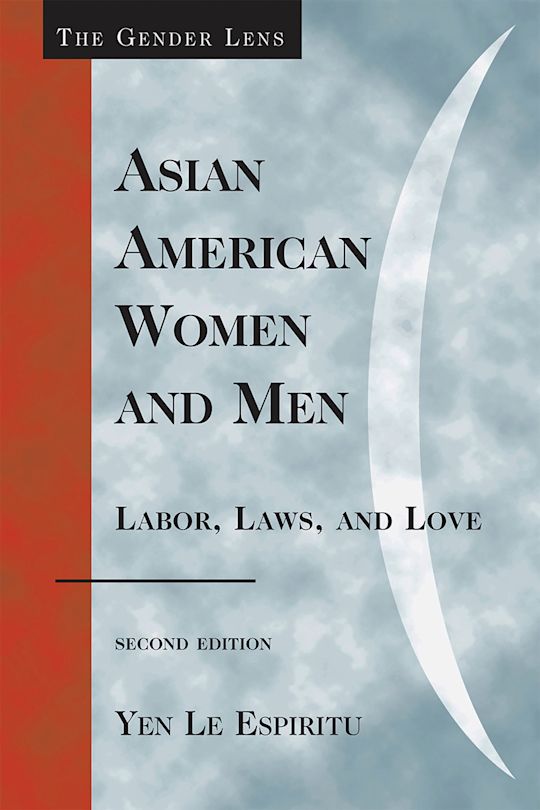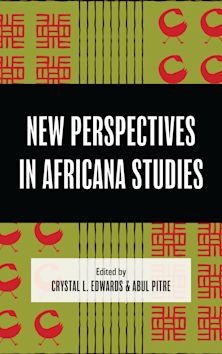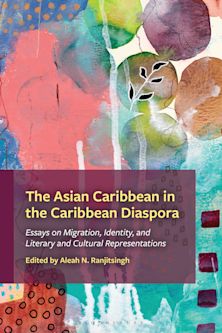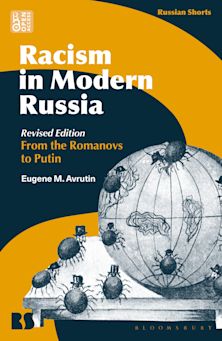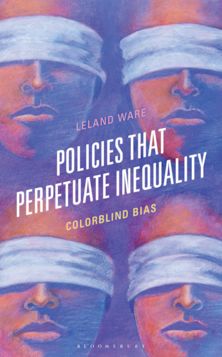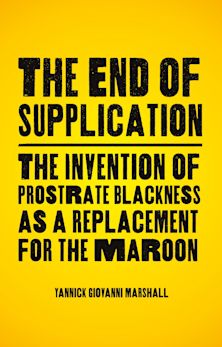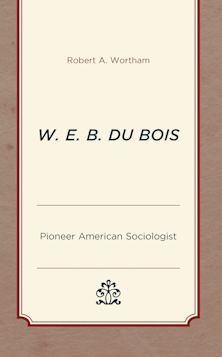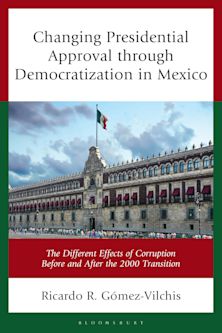- Home
- ACADEMIC
- Politics & International Relations
- Race and Ethnicity
- Asian American Women and Men
Asian American Women and Men
Labor, Laws, and Love
- Textbook
Asian American Women and Men
Labor, Laws, and Love
- Textbook
This product is usually dispatched within 1 week
- Delivery and returns info
-
Free US delivery on orders $35 or over
Exam copy added to basket
Choose your preferred format. Please note ebook exam copies are fulfilled by VitalSource™.
You must sign in to add this item to your wishlist. Please sign in or create an account
Description
Labor, laws, and love. Yen Le Espiritu explores how racist and gendered labor conditions and immigration laws have affected relations between and among Asian American women and men. Asian American Men and Women documents how the historical and contemporary oppression of Asians in the United States has (re)structured the balance of power between Asian American women and men and shaped their struggles to create and maintain social institutions and systems of meaning. Espiritu emphasizes how race, gender, and class, as categories of difference, do not parallel but instead intersect and confirm one other.
Table of Contents
Chapter 2 Chapter Two: Stretching Gender, Family, and Community Boundaries, 1840s-1930s
Chapter 3 Chapter Three: Changing Lives World War II and the Postwar Years
Chapter 4 Chapter Four: Contemporary Asian America Immigration, Increasing Diversity, and Changing Resources
Chapter 5 Chapter Five: Ideological Racism and Cultural Resistance Constructing Our Own Images
Chapter 6 Chapter Six: Beyond Dualisms Constructing an Imagined Community
Product details
| Published | Oct 29 2007 |
|---|---|
| Format | Hardback |
| Edition | 2nd |
| Extent | 160 |
| ISBN | 9780742560604 |
| Imprint | Rowman & Littlefield Publishers |
| Dimensions | 9 x 6 inches |
| Series | Gender Lens |
| Publisher | Bloomsbury Publishing |
About the contributors
Reviews
-
Espiritu examines the historical and contemporary experiences of Asian American women and men-with each other and with the dominant white society-from a gendered perspective. Locating gender in its intersection with race and class, this is one of the few works in ethnic studies or women's/gender studies that actually discusses the matrix of race/gender/class structures of oppression within a specific racial-ethnic community, i.e., Asian Americans, one that is also largely an immigrant community. Espiritu lends support to charges by women of color that traditional feminist theory falsely universalizes the category of 'women,' and overlooks the positions that white men and white women occupy over men of color. She also admits that this work does not disrupt the 'male-centered' framework of Asian American studies. The historical oppression of Asian Americans is explored along material and cultural lines, e.g., the formal and informal labor markets, including prostitution; family and small businesses; Japanese American internment; marriage and family; refugee resettlement; racist stereotyping. Theoretically, Espiritu advances the concept of 'racialized patriarchy.' She concludes with a call to create an 'imagined community' of cross-gender, cross-cultural,
Evelyn Hu-DeHart, University of Colorado, Boulder, Choice Reviews
-
Asian American Women and Men by Yen Le Espiritu offers a piercing and sensitive account of the experiences of first- and second-generation Asian American women and men, showing that gender differentiation and disadvantage is not a universal experience but is structured distinctly depending on its intersections with race and class. Drawing heavily on cultural theory, Espiritu exposes the binary oppositions that underlie representations of Asian American gender and sexuality.
Verta Taylor, Professor, University of California at Santa Barbara
-
Espiritu examines the historical and contemporary experiences of Asian American women and men-with each other and with the dominant white society-from a gendered perspective. Locating gender in its intersection with race and class, this is one of the few works in ethnic studies or women's/gender studies that actually discusses the matrix of race/gender/class structures of oppression within a specific racial-ethnic community, i.e., Asian Americans, one that is also largely an immigrant community. Espiritu lends support to charges by women of color that traditional feminist theory falsely universalizes the category of 'women,' and overlooks the positions that white men and white women occupy over men of color. She also admits that this work does not disrupt the 'male-centered' framework of Asian American studies. The historical oppression of Asian Americans is explored along material and cultural lines, e.g., the formal and informal labor markets, including prostitution; family and small businesses; Japanese American internment; marriage and family; refugee resettlement; racist stereotyping. Theoretically, Espiritu advances the concept of 'racialized patriarchy.' She concludes with a call to create an 'imagined community' of cross-gender, cross-cultural, and cross-class coalitions bound together by the common struggle against all pervasive forms of structured domination.
Evelyn Hu-DeHart, University of Colorado, Boulder, Choice Reviews

ONLINE RESOURCES
Bloomsbury Collections
This book is available on Bloomsbury Collections where your library has access.









